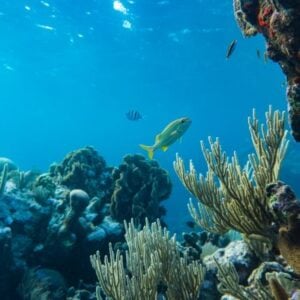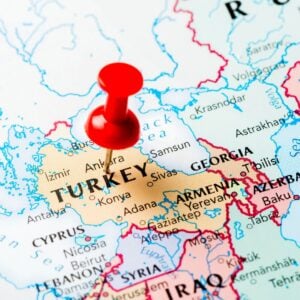Congo’s economy experienced moderate growth in 2024, with real GDP rising by 2.6%, marking the first increase in real per capita income since 2016. While agriculture expanded due to local content policies supporting domestic inputs and manufacturing benefited from higher regional exports, oil production fell because of technical issues and lower global prices. This highlighted the economy’s continued reliance on hydrocarbons and the urgency of diversification. Despite revenue growth in non-oil sectors, employment gains remained limited, reflecting structural constraints such as unreliable electricity and restricted access to finance, which hinder firm growth and job creation.
On the fiscal side, the government improved revenue collection, raising total revenues to 25.1% of GDP in 2024, supported by non-oil taxes, stricter enforcement, excise increases, and initial gas sale inflows. However, higher domestic interest payments and social transfers increased expenditures to 22.4% of GDP, narrowing the budget surplus. Congo’s debt-to-GDP ratio fell to 93.6% in 2024, but a higher domestic debt share raised refinancing and liquidity pressures. Debt service absorbed about half of budget revenues, prompting arrears, spending cuts, and the launch of a debt reprofiling plan (PNOT).
Looking ahead, GDP growth is projected at 2.8% in 2025, with modest improvements through 2027. Global uncertainties, tighter financial conditions, and declining oil demand and prices will test fiscal and external resilience. Sustaining a 3% budget surplus will require careful spending consolidation and continued non-oil revenue growth. Debt reduction will depend on disciplined borrowing, improved cash management, and enhanced fiscal governance.
Long-term prosperity hinges on preserving and diversifying Congo’s national wealth. From 1995 to 2020, total wealth nearly doubled, anchored in human (39%) and natural capital (38%), with produced capital (23%) driven by oil-boom investments. Yet wealth per capita has declined due to insufficient investment in human capital, natural capital degradation, and rapid population growth. Forests, covering over 69% of the country and storing approximately 16 billion tons of carbon, are under threat from deforestation and biodiversity loss. Strengthening forest governance, implementing digital traceability for forest products, expanding local wood processing, and accessing carbon markets could create jobs, unlock climate financing, and support conservation.
Human capital development remains central to long-term growth. Health and education spending has fluctuated with oil cycles, limiting improvements in learning, health outcomes, and productivity. Stabilizing social spending, enhancing education quality, expanding access—including through TVET aligned to labor market demand—will be critical to increasing resilience, reducing poverty, and translating non-oil growth into improved livelihoods.
Key policy recommendations include strengthening fiscal sustainability and debt governance by boosting non-oil revenue, rationalizing non-essential spending, and improving transparency in state-owned enterprises. Private sector participation in infrastructure through well-structured PPPs is encouraged to expand financing and delivery capacity. Investments in human capital, health, education, and TVET should be prioritized and aligned with labor market needs. Efficient management of non-renewable resources, including updated legal frameworks, regional gas market development, and adherence to the Extractive Industries Transparency Initiative (EITI), is essential. Maximizing renewable natural capital involves strengthening forest and land governance, promoting sustainable agriculture, ecotourism, rural energy access, and readiness for climate financing. International support, including REDD+ frameworks, climate finance, and innovative instruments like sustainability-linked bonds, is crucial to complement national efforts to preserve forests and support sustainable development.







